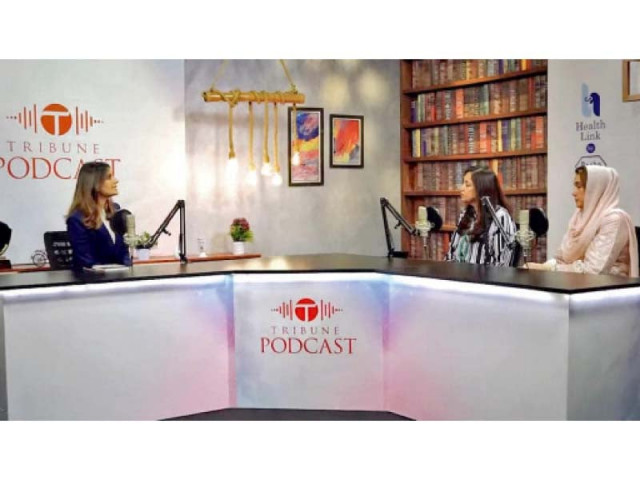Early detection crucial in the fight against breast cancer
One in every eight women in world at risk of breast cancer, says Dr Naila Zahid

Health experts have urged Pakistani women to take proactive measures in reducing the risk of breast cancer.
"One in every eight women in the world is at risk of breast cancer, but when we focus on South Asia, the situation in Pakistan is particularly alarming," said Professor Dr Naila Zahid, Head of the Oncology Department at Liaquat National Hospital, while speaking in a recent podcast moderated by Aisha Abrar for The Express Tribune.
Prof Naila expressed concern over the prevalence of breast cancer at increasingly young ages, even among women in their twenties, and identified environmental factors and smoking as potential contributors to the malignancy.
She also underlined the need for further research to determine whether excessive chicken consumption could be a contributing factor. "Although not yet confirmed, there is a possibility that excessive broiler chicken consumption could have a link to the disease," she suggested.
On her part, Hafsa Shamsie, Managing Director of Roche Pakistan Ltd, emphasised that early detection could play a vital role in preventing the malignant disease and reducing the financial burden on families.
Prof Naila advised that "every woman should perform a self-examination every month," and recommended that women above 40 years of age undergo an annual mammogram. "The chances of a successful cure are significantly higher when the disease is diagnosed at an early stage," she added.
Shamsie, echoing the importance of early detection, pointed out that it could reduce the trauma of treatment and make it more manageable. She underlined that "early detection is of utmost significance."
Sharing Roche's vision, Shamsie stated that her company is committed to improving the health of Pakistani women. She explained that awareness, screening, diagnosis, and treatment are the essential stages a woman must go through. She also mentioned that lung cancer is another common disease among Pakistani women.
Professor Naila emphasised the need to acknowledge the reality of the disease. She stressed that not only should families support breast cancer patients, but society as a whole should also rally behind families battling this malignancy. "This is not a contagious or infectious disease," she clarified.
Discussing treatment facilities, Shamsie mentioned, "In Pakistan, we have highly skilled oncologists and a robust tertiary care system. We run a patient support program." She noted that through this program, Roche covers 50 per cent of the costs. She also mentioned that the Sehat Card in Punjab and Khyber-Pakhtunkhwa helps alleviate the financial burden on patients. "The individual patient alone cannot bear the financial burden of this disease," she pointed out.
Shamsie highlighted the need for widespread awareness, suggesting that the government handle it effectively, similar to its efforts against diseases like polio and hepatitis. She also proposed the need for a public-private partnership, noting the government's increased attention to the health sector in Pakistan in recent years. "There is hope that we will reach an ideal situation where every individual will have access to medical support."
Prof Naila recommended that the best time to examine the breast is soon after menstruation. She also noted that women in rural areas require more guidance and support. Additionally, she mentioned that spending Rs1,500 on a mammogram is not a significant amount for women. She suggested, "October should be designated as the month for mammograms."
Shamsie advised Pakistani women to prioritize their own health, stating that "A healthy woman will be a healthy mother."
Published in The Express Tribune, October 23rd, 2023.



















COMMENTS
Comments are moderated and generally will be posted if they are on-topic and not abusive.
For more information, please see our Comments FAQ